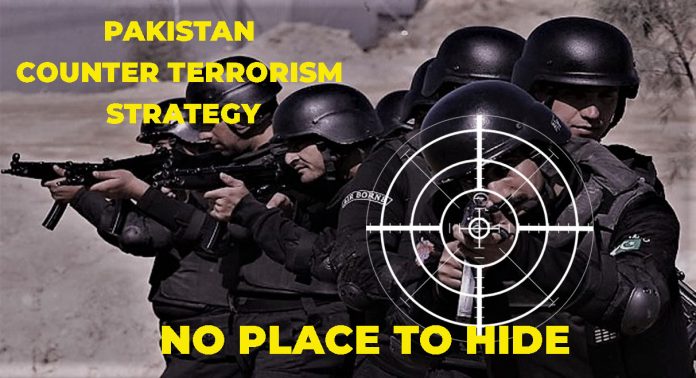Since the War on Terror, Pakistan has lost more than 83,000 lives and borne economic losses of more than USD126 billion. To crumble terrorism, Pakistan decided to conduct internal military operations following which there was a significant decline in this menace. According to the National Counter Terrorism Authority data, there was a constant decline in terrorism- related incidents across Pakistan after Operation Zarb-e-Azb and launch of the National Action Plan (NAP). However, there has been a sudden increase of 42% in terrorism incidents since 2021. Such an alarming increase needs serious attention to identify the loopholes in Pakistan’s existing counterterrorism strategy and come up with more robust measures to tackle this issue.
One primary reason for such a spike could be regional politics in play that are beyond the state’s control, but which have domestic fallout. For instance, the hasty US withdrawal from Afghanistan. This unplanned withdrawal in 2021 provided an opportunity to various terrorist groups in Afghanistan for instance the Tehreek-i-Taliban Pakistan (TTP), to re-organise and re-launch their terrorist activities against Pakistan. The attack in Peshawar in Kocha Risaldar is one evidence which cost the nation 64 lives in a single blast. It must be noted that 207 attacks took place in 2021 alone, out of which 128 attacks were carried out by TTP and Islamic State Khorasan (ISK). Some media reports have revealed that the suicide bomber, who killed 64 people in Peshawar, was an Afghan refugee who returned to Pakistan from Afghanistan to carry out this particular attack. Therefore, beside engagement with Afghanistan as a brotherly Muslim country, Pakistan will have to devise a strategy to deal with the overflow of terrorism from across the border.
Kinetic operations are a useful tool to wipe out terrorism from society. Pakistan was able to reduce terrorism from its soil by bringing down the number of such incidents from 2061 in 2010 to 146 by 2020. However, there is still a long way to go for Pakistan to fill the gap in this domain. Pakistan will have to work towards ‘National Cohesion’ in order to reduce internal friction in society. Moreover, in order to sustain its counterterrorism strategies and to capitalise on its achievement, Pakistan needs to build resilience in its society by developing soft power along with the kinetic operations.
Along with building soft power, there is a need to bring further clarity in the definition of terrorism in domestic laws. Pakistan is currently using the definition provided under Section 6 of the Anti-Terrorism Act (ATA) of 1997. However, a major issue with this definition is its limited scope and misuse for multiple other criminal offences which are not categorised as an act of terrorism. For instance, the term ‘kidnapping for ransom’ in ATA 1997 raises an important question whether a crime committed under any kind of personal motivation and benefit could be charged under terrorism laws. This further raises the question on efficacy of the existing definition of terrorism in the legal framework and needs immediate revision specifically given the multidimensional scope of terrorist threats emanating within society.
The recent focus on Non-Traditional Security Threats (NTSTs) in the National Security Policy, 2022-26 is a welcome step. In this regard, there is a dire need to adopt a more balanced strategy to neutralise traditional and non- traditional threats to Pakistan’s national security.
In academia, a mixed-method approach or ‘Multimethodology’ is often preferred in order to make research more authentic and valid. Perhaps, to devise a strategy against terrorism and extremism in Pakistan, a similar approach could be the way forward. Such an approach would mean that besides kinetic operations, Pakistan should use a mix of internal soft power by working extensively on national cohesion and by refining the existing legal framework on terrorism. A mix of hard and soft power, in accordance with the challenges faced by the nation, could be helpful in reducing the threats emerging within society and ensure its survival.
Asad Ullah Khan is a Senior Researcher at Centre for Aerospace & Security Studies (CASS), Islamabad, Pakistan. He can be reached at cass.thinkers@gmail.com
Image Source: Associated Press of Pakistan 2021. “Pakistan counter terrorism strategy showing positive results” Associated Press of Pakistan, 10 August 2021. https://www.app.com.pk/national/pakistan-counter-terrorism-strategy-showing-positive-results/




